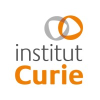PhD Position F/ M Deep learning for assisting clinical decisions in brain imaging: trustworthy validation and benchmarking
Contexte et atouts du poste
A vibrant scientific, technological, clinical and ethical environment
You will work within the ARAMIS lab (
The ARAMIS lab, which is also part of Inria (the French National Institute for Research in Computer Science and Applied Mathematics), is dedicated to the development of new machine learning and statistical approaches for the analysis of large neuroimaging and clinical data sets.
This PhD is funded as part of the Paris Artificial Intelligence Research Institute (PRAIRIE -
Mission confiée
Deep learning-based analysis of brain imaging data holds great promises for assisting clinical decision in brain disorders (e.g. Alzheimer’s disease, Parkinson’s disease…). This is a very active research field with many papers published each year (Colliot, 2023). However, the real medical impact in terms of translation to patient care has been so far limited. Experimental results presented in research papers are most often inadequate for answering two key questions for clinical translation: i) do we have solid guarantees on the performance of the proposed approach?; ii) among different deep learning approaches, do we have strong evidence to select the one which performs best? There are several underlying reasons: i) irreproducible research procedures and results; ii) inadequate experimental set-ups which don’t account for the specificities of brain imaging; iii) biased validation procedures; iv) inadequate or lack of inferential statistics.
Our team has been a pioneer and has produced highly-cited work on reproducible and trustworthy evaluation of machine learning for computer-aided diagnosis of Alzheimer’s disease (e.g. Samper-Gonzalez et al, 2018; Wen, Thibeau-Sutre et al, 2020). In particular, we have unveiled biased validation procedures, proposed frameworks to avoid them, performed large-scale benchmarks and created an Open Source software platform for reproducible deep learning in brain imaging, ClinicaDL (Wen J, Thibeau-Sutre E, Diaz-Melo M, Samper-González J, Routier A, Bottani S, Dormont D, Durrleman S, Burgos N, and Colliot O, Convolutional neural networks for classification of Alzheimer’s disease: Overview and reproducible evaluation, Medical Image Analysis, 63, 101694, 2020.
Principales activités
Specific objectives are as follows:
Compétences
Excellent background in machine learningExcellent programming skills in PythonStrong interest for experimental aspects of machine learningGood background in statisticsKnowledge of the specificities of computer vision and medical image processing would be a plusGood writing skillsGood relational and communication skillsAbility to collaborate efficiently with other team membersAvantages











